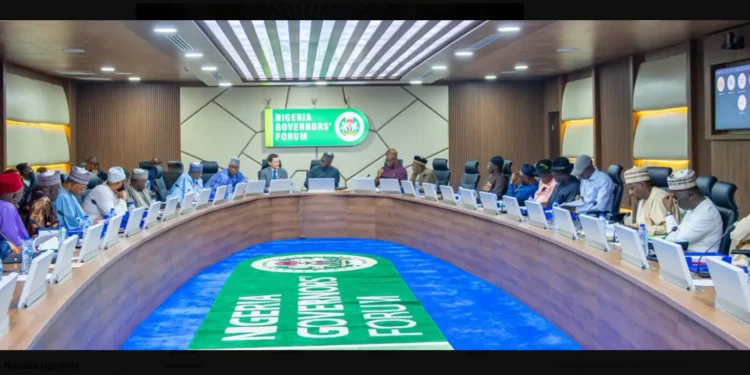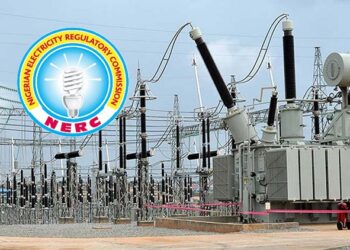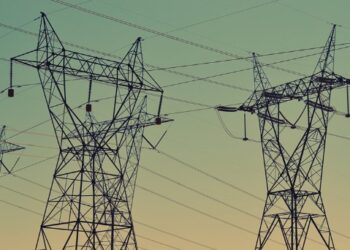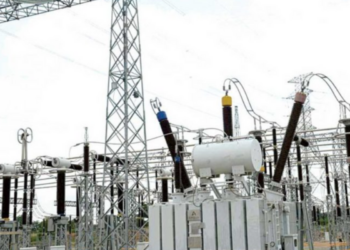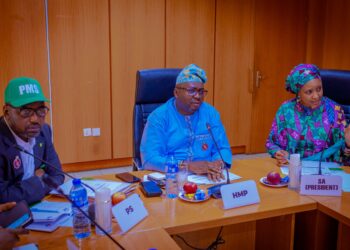The Nigerian Governors’ Forum (NGF) is currently considering plans for states to be able to export or import electricity between them or from the National grid
In the Forum’s policy recommendation to the Ministry of Power on the National Integrated Electricity Policy and Strategic Implementation Plan (NIEPSIP), the forum advised the development of policy to ensure states with excess generation capacity to either export to the national grid or their fellow states and vice versa.
The forum advised that states should be allowed to freely design their market without interference and in line with the unique socioeconomic factors that favours it such as sources of power either wind, solar, gas, hydro etc.
Furthermore, it explained that where states power generation licensee produces more than the state’s requirement, it should be free to export such to other states or the national grid and vice versa.
It states, “Many states may rely on the national grid for bulk supply of power, rather than license new generation plants due to technology or market viability constraints. In the same vein, States with excess/surplus generation capacity from their wholesale markets may need to make that capacity available to the national grid as spinning reserves for grid stability or sell to other states with less power generation resources. Besides these two instances, there might also be other reasons for such bilateral interconnections or inter-state power transactions.”
Objectives of the NIEPSIP
The document further called on the NIEPSIP to promote transactions between the federal wholesale market and licensees and states’ electricity licensees across the generation, distribution, and transmission channels to avoid stranded generated power and also lower the cost of delivering power to states.
It also stated that the NIEPSIP should facilitate power purchase transactions between subnational outside the national grid.
Backstory
The new Electricity Act signed into law by President Tinubu provides state governments with the powers to regulate electricity generation, transmission, and distribution within their states. The Electricity Act aligns existing electricity laws with the recent constitutional amendments made by former President Buhari in March 2023, allowing states to generate, transmit, and distribute electricity within areas covered by the national grid.
- This Act designates electricity regulation as a concurrent matter, enabling both state and federal governments to legislate on it.
- Already, the Nigerian Electricity Regulatory Commission (NERC) has granted regulatory powers to state governments that have set up their own state regulatory commission. Enugu, Ekiti, and Ondo states have taken advantage of this provision and already established their state electricity regulatory commission (SERC) and now assume control of their electricity market.
What this means
Although a proposition, this means that in a situation where a state government-licensed generation company generates electricity beyond the state’s electricity requirement, it may decide to either export it to the national grid or a neighbouring state deficient in electricity generation.
- While the new Electricity Act does not mention the export of electricity between states, it called for collaboration and creative partnerships between sub-nationals and private sector to solve their electricity problems. However, implementation of the Act is still in its infancy as only about five states have domesticated the Act to establish their state electricity regulatory commission.
- Furthermore, no state has licensed any new electricity generation, transmission, or distribution companies for its domain since the Act became live in 2023.
- According to the Act, the Federal Government, through the Ministry of Power, must prepare and publish an Integrated National Electricity Policy and Strategic Implementation Plan (NIEPSIP ) within one year of the Act’s commencement.
- This plan will be developed in consultation with relevant stakeholders and government authorities. The plan is to be reviewed periodically, with a mandatory review at least every five years.
- The recommendations for state export and import of electricity by the Nigerian Governors Forum is for the NIEPSIP being developed.

